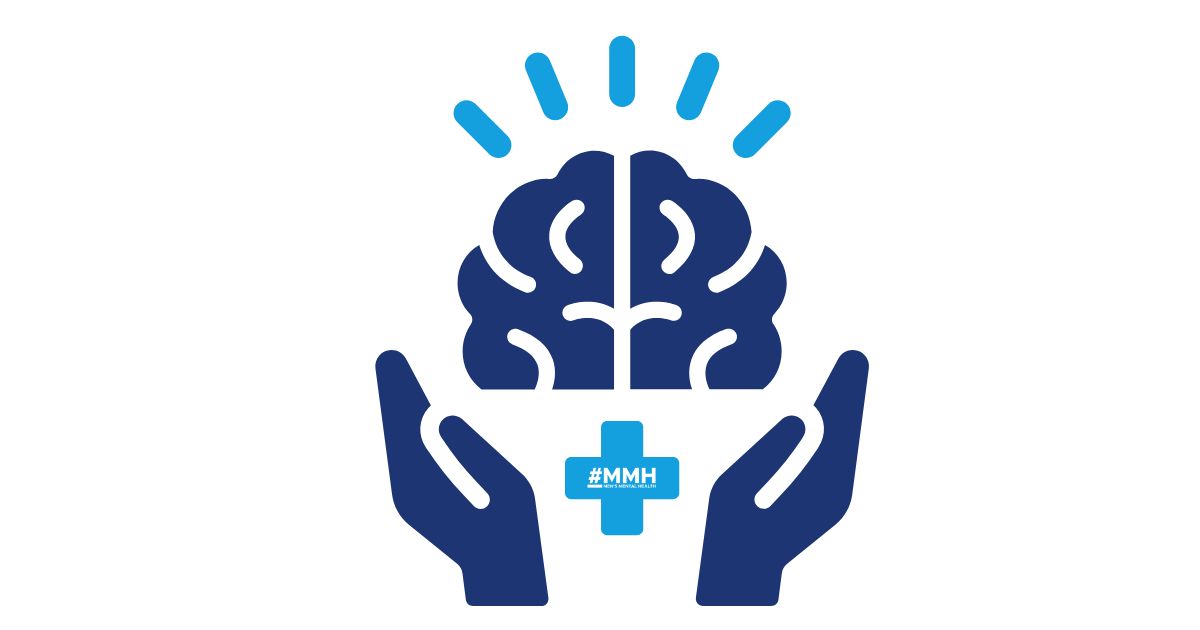MMH Men’s Mental Health does not provide direct mental health support. We do not offer crisis intervention, therapy, counselling, or medical advice. Instead, we provide information and signposting to external services that may be able to help.

Emotional Well-being
Overwhelmed and unsure where to turn? Support is available when you need it.
Need to talk?
Samaritans are here to listen, 24/7, 365 days a year. You can call them for free on 116 123 or visit www.samaritans.org
Prefer to Text?
Shout is a free, confidential, 24/7 text messaging support service for anyone who is struggling to cope.
If you feel in danger please call 999 or go directly to emergency services.
Taking Control of Your Mental Health
Emotional well-being is about more than just feeling happy—it’s about being able to handle stress, manage emotions, and build healthy relationships. Life throws challenges at us all, but when emotional struggles become overwhelming, they can affect mental health, work, and relationships.
Many men bottle things up, believing they need to “stay strong” or deal with problems alone—but emotional well-being isn’t about avoiding emotions, it’s about understanding and managing them in a healthy way.
If you’re experiencing anxiety, depression, low self-esteem, or emotional numbness, it’s important to recognize the signs and take action.
This page covers:
✔ What emotional well-being is
✔ What causes emotional struggles
✔ Signs and symptoms
✔ Types of emotional challenges
✔ How to manage your emotional well-being
What is Emotional Well-being?
Emotional well-being is the ability to manage emotions effectively, cope with stress, and maintain positive relationships. It doesn’t mean always feeling happy but rather being able to navigate life’s ups and downs in a healthy way.
✅ Good emotional well-being helps you:
- Handle stress and setbacks.
- Maintain healthy relationships.
- Feel more confident and resilient.
- Improve mental and physical health.
📌 When emotional well-being is neglected, it can lead to depression, anxiety, stress, and other mental health issues.
What Causes Emotional Distress?
Emotional struggles can stem from a variety of personal, social, and environmental factors. Some common causes include:
🔹 Common Causes
- Chronic stress (work, finances, family pressure)
- Grief and loss (death of a loved one, divorce)
- Social isolation and loneliness
- Low self-esteem and confidence struggles
- Trauma from past experiences
- Unresolved anger and frustration
- Mental health disorders (anxiety, depression)
📌 Ignoring emotional distress can make it worse over time, leading to burnout, relationship breakdowns, or self-destructive behavior.
Symptoms of Emotional Struggles
Everyone experiences emotional struggles differently, but common signs include:
🟠 Psychological Symptoms
- Persistent sadness or hopelessness
- Difficulty managing emotions (anger, frustration)
- Increased anxiety or fear
- Feeling numb or disconnected from life
🟠 Physical Symptoms
- Trouble sleeping (insomnia, nightmares)
- Fatigue and low energy levels
- Loss of appetite or overeating
- Muscle tension or headaches
🟠 Behavioral Symptoms
- Withdrawing from social activities
- Increased substance use (alcohol, drugs)
- Losing interest in hobbies and passions
- Avoiding responsibilities at work/home
📌 If these symptoms persist, they may indicate a deeper mental health condition that requires professional support.
Types of Emotional Struggles
Emotional well-being covers a range of mental health challenges, including:
🟡 Anxiety
Persistent worry, fear, or panic that affects daily life.
Read More: Anxiety
🟡 Depression
Feelings of sadness, hopelessness, or worthlessness that last for weeks or months.
Read More: Depression
🟡 Self-Esteem & Confidence Issues
Struggles with self-worth and personal identity.
Read More: Self-Esteem
🟡 Loneliness & Isolation
Feeling socially disconnected from friends, family, or society.
Read More: Loneliness
🟡 Grief & Bereavement
Coping with loss and mourning the death of a loved one.
Read More: Grief & Loss
🟡 Anger Management Issues
Difficulty controlling temper and managing frustration.
Read More: Anger Management
Explore More
Emotional well-being is deeply connected to other mental health challenges. Explore more related topics:
🟡 Internal Resources
Stress – Learn how stress affects emotional health and how to manage it.
Sleep Problems – Discover how poor sleep impacts emotions and mental clarity.
PTSD & Trauma – Understand how past trauma can affect emotional well-being.
Substance Abuse – The link between emotional distress and addiction.
Relationship Struggles – Emotional challenges in breakups and relationship difficulties.
🟡 External Support
Mind – Expert advice on emotional and mental health conditions.
NHS Every Mind Matters – Free mental health tools and self-care resources.
Self-Help Tips for Emotional Well-being
While these steps can help you improve your emotional well-being, they are general suggestions and may not work for everyone.
If emotional struggles persist, consult a healthcare professional.
Practice Mindfulness
Engage in deep breathing, meditation, or journaling.
Stay Active
Regular exercise boosts mood and reduces stress.
Build Support Networks
Stay connected with family, friends, or support groups.
Seek Professional Help
Therapy and counseling can provide coping strategies.
Prioritize Sleep & Nutrition
A balanced lifestyle improves mental clarity.
It’s Okay to Ask for Help.
There is no shame in needing support - everyone deserves help.
Take the next step:
Need to talk?
Samaritans are here to listen, 24/7. You can call them for free on 116 123 or visit www.samaritans.org
Prefer texting?
Shout offers free, 24/7 confidential support. Text ‘SHOUT’ to 85258 to start a conversation or visit
www.giveusashout.org
Explore More
Looking for guidance? Browse external resources on mental health, self-care, and well-being.
Support Groups
Find connection. Join an external support group and connect with others who understand.
